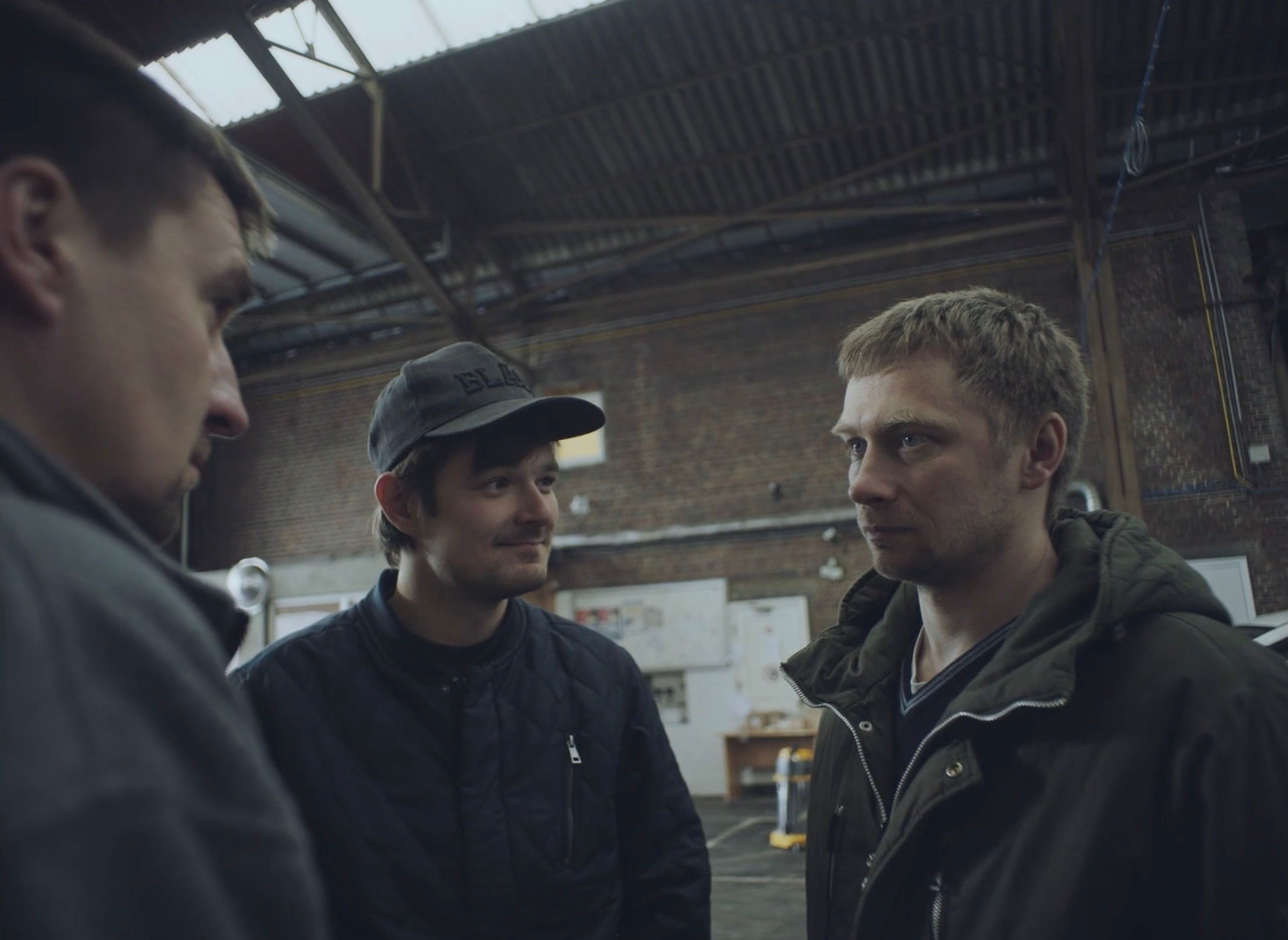
« Oleg » : A harrowing portrait of modern slavery in Belgium
Created on
Translation by:
Emanuel Nevárez PagánArticle in en
Premiering on July 1 in theaters, the latest film of director Juris Kursietis « Oleg » tells the true story of a Latvian illegal immigrant in Belgium who falls prey to a Polish criminal organisation. Through the use of closeups and suspense, the director wanted to portray a crude reality on the screen : modern slavery in modern societies.
When he returns to the meat factory where he worked in Gand, Oleg meets Andrew, a Polish immigrant who lives in Belgium. « I'll help you, Oleg », he says to him in English. The film « Oleg » recounts the story of Oleg, a Latvian illegal immigrant who comes to Belgium with the dream of finding work and paying off his debts. The dream, however, quickly turns into a nightmare when he falls victim to Andrew's criminal organisation.
In his native country, Oleg is one of many who are known as « non-citizens ». After the independence of Latvia in 1991, the new country did not grant Latvian citizenship to people who did not already had it before the country became part of the Soviet Union. Those who came after the country's annexation by the Soviet Union, amongst them Russians, Belorussians, Polish and Lithuanians, were given the status of « non-citizens », which stripped them of their right to vote and practice certain professions. There were still around [260 000] of these « non-citizens » (http://www.lvn.asso.fr/spip.php?article1374) by 2015, despite new naturalisations these past decades.
« If you escape, I will find you »
Now living in Belgium without a European passport, Oleg, played by Valentin Novopolskij, finds himself in a precarious situation. His only hope at the beginning of the film can be found in Andrew (dawid Odgrodnik), who promises him a job and a Polish passport. He also takes in other Polish and Latvian illegal immigrants and sends them to work on construction sites. This underground organisation seems very well established in Belgium. According to a study by ULB conducted in 2004, « There are two Polish underground economic sectors that stand out in Brussels : construction for men and housekeeping for women. In the construction sector, a Polish "third party" manages the job market : he finds cheap workers for employers, receives a fee, and finally, sells these job opportunities to illegal immigrants ».

The inhumane working conditions, the lack of pay and the violent behavior of Andrew pushes Oleg to confront the dire situation in which he finds himself in. Although he was able to obtain a forged Polish passport, it was immediately confiscated by Andrew. His threats and acts of violence send a clear message to all : he holds these men prisoners through threats and their own fear of ending up in the streets.
A film based on a true story
« Approximately 80-85% of everything that you see throughout the film happened in real life. In certain cases, it was the same level of violence », explains Juris Kursietis. Inspired by a story back in 2013 about a Latvian worker in Belgium who went through a living hell under a criminal organisation, Kursietis decided to explore this subject even further. « I began searching for people who knew about this subject, but everyone told me that I would not find these kind of cases in Belgium ». It only took one trip to a meat factory in Gand to find a group of Latvians who worked as a deboning crew. « We visited their homes, we talked about their lives, and we discovered very interesting stories ».
The growing demand for manual labour and the working experience of certain illegal immigrants makes this a never-ending scheme between « exploiter - exploitee ». For Juris Kursietis, it is a vicious cycle that involves many levels. « These criminals, which are basically pimps, (_prostitution is another activity which is profitable for them, ndlr) often find themselves in need of money. They are left with few options, and they understand very well the situation of these illegal immigrants. So, what easier way to make money than by exploiting people who have no rights ? Then we have these meat factories that knowingly employ illegal immigrants who have no rights, which makes them easy targets for these criminal organisations. But the ever-growing demand for cheap labour compels them to do whatever they must to supply more meat at a cheaper price_ ».
« We must tackle this problem without delay »
This reality that is present throughout Europe still remains hidden for most people. If modern slavery is mostly found in Asia and Africa, then it can also be found in Europe. According to a study conducted by Global Slavery Index in 2016, (https://media.cafebabel.com/article-photos/creative/200701-Global-Index-Slavery.jpg) 23 000 people were victims of some form of slavery in Belgium. This number encompasses « all forms of exploitation that a person may be submitted by threat, coercion, deception or force », such as human trafficking and forced marriages. The same organisation found, nonetheless, that Belgium ranked fifth on the list of countries where the greatest efforts are being made to combat modern slavery.
Throughout his film, the director faces a subject that has bothered him. According to him, « we must tackle this problem without delay. For us Europeans, it is time to deal with all of this. This vicious cycle cannot be perpetuated, new cases like this can be found in Europe every day because we are unable to face the truth that hides behind our comfortable lifestyle ».
Claustrophobia
To shoot the film, the director decided to use an unorthodox technique - a camera carried on the shoulder - in order to follow Oleg and the other characters around at all times. Oleg's closeups and the film's gloomy atmosphere mirrors the confinement experienced by the character. « It is our intention that the audience feels the agony that the characters felt_ ».
For Belgian co-producer Isabelle Truc, the suspense experienced throughout the film can help send a message that still remains unknown by most people. « We live in a world inhabited by criminals, there is a suspense that can be attributed to the nature of the theme. I think it gives us an adrenaline rush ».
In 2019, this film was shown in many film festivals around the world since its premiere in Cannes at the Director's Fortnight. The film's highly anticipated premiere in Belgian theaters, according to Isabell Truc, will be today.
Oleg is a production of Tasse Film (Latvia) and a co-production of Iota Production (Belgium), InScript (Lithuania) and Arizona Production (France)
With the contribution of : Centre du Cinéma et de l’audiovisuel de la fédération Wallonie-Bruxelles, Centre du Cinéma Letton, Centre du Cinéma Lithuanien, U Media, LTV, Cinevera, CNC and Eurimages.
Translated from « Oleg » : l'esclavage moderne en Belgique by Emanuel Nevárez Pagán.



